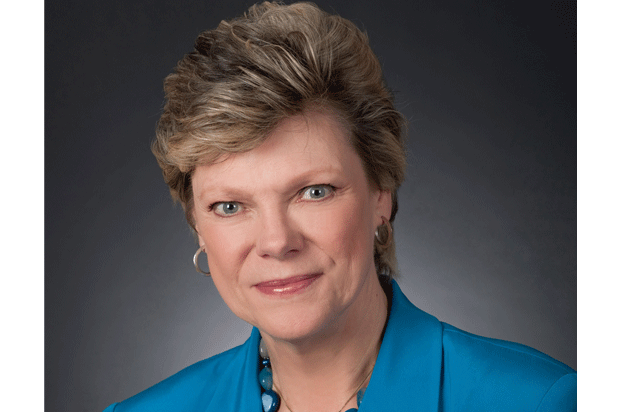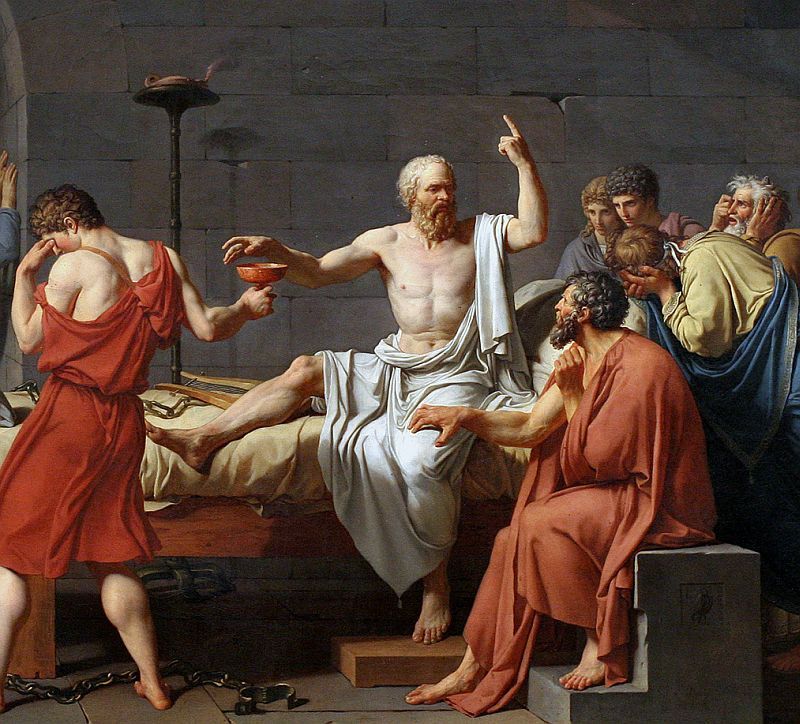As is often the case, it takes the intersection of two or more events to create that moment of illumination, that instance of clarity, when the seemingly irrational makes sense. This past week the situations involve the protection and oversight of the United States intelligence apparatus involving a virtual menage a trois consisting of the government, Edward Snowden and an anonymous whistleblower.
 On Tuesday, the United States government filed a civil lawsuit against Snowden, a former CIA employee and NSA contractor, to prevent him from profiting from sales of his memoir Permanent Record. Assistant Attorney General Jody Hunt issued the following statement upon filing the government’s claim.
On Tuesday, the United States government filed a civil lawsuit against Snowden, a former CIA employee and NSA contractor, to prevent him from profiting from sales of his memoir Permanent Record. Assistant Attorney General Jody Hunt issued the following statement upon filing the government’s claim.
Edward Snowden has violated an obligation he undertook to the United States when he signed agreements as part of his employment by the CIA and as an NSA contractor.
The United States’ ability to protect sensitive national security information depends on employees’ and contractors’ compliance with their non-disclosure agreements, including their pre-publication review obligations.
And she is correct as to the specifics of non-disclosure and pre-publication review. According to a policy memorandum provided by the National Security Agency (NSA) and the Central Security Service (CSS):
Pre-publication review is the process to determine that information proposed for public release contains no protected information and is consistent with established NSA/CSS, DOD, and IC policies.
Detailed procedures for review are provided in NCA/CSS Policy 1-30, including submission of the following information:
- Title of Document
- Document for review in its FULL and FINAL form. (NSA/CSS emphasis)
- Intended audience or publication venue.
- Written approval for name use from all former and present NSA/CSS affiliates named in the material, if applicable.
So, why isn’t the title of today’s post simply U.S. v. Snowden. Because the Intelligence Community Protection Act of 1998 and the Whistleblower Protection Act of 2012, which amend both the Central Intelligence Act of 1949 and the Inspector General Act of 1978, obligates those same employees and contractors “to report complaints or information to Congress about serious problems involving intelligence activities.” And as we have been made aware this week, there are mandatory procedures for dealing with such complaints, as outlined on Wikipedia.
An employee or contractor who intends to report to Congress a complaint or information of “urgent concern” involving an intelligence activity may report the complaint or information to the DOJ Office of the Inspector General. Within a 14-day period, the OIG must determine “whether the complaint or information appears credible,” and upon finding the information to be credible, thereafter transfer the information to the Attorney General who then submits the information to the House and Senate Intelligence Committees.
Without judging whether Snowden was rightfully concerned about overreach by the intelligence community related to the collection of data on U.S. citizens, he elected not to follow the procedures provided under the law. The publication of Permanent Record reopens the debate whether he actually had a choice in the matter. In March 7, 2014 testimony before the European Parliament, Snowden defended his actions.
I had reported these clearly problematic programs to more than 10 distinct officials, none of whom took any action to address them. As an employee of a private company rather than a direct employee of the U.S. government, I was not protected by U.S. whistleblower laws, and I would not have been protected from retaliation and legal sanction for revealing classified information about lawbreaking in accordance with the recommended process.
Not everyone agrees with Snowden’s interpretation of the whistleblower statutes and executive directives. Then chair of the Senate Select Committee on Intelligence Dianne Feinstein rejected Snowden’s contention stating, “I don’t look at this as being a whistleblower. I think it’s an act of treason.”
In an October 2015 interview on CNN, presidential candidate Hillary Clinton distinguished between Snowden’s concern about NSA programs and the method by which he raised the issue.
He broke the laws of the United States. He could have gotten all of the protections of being a whistleblower. He could have raised all the issues that he has raised. And I think there would have been a positive response to that.
Legal experts suggest neither position is as clear-cut as one would hope.
Which brings me to John/Jane Doe, the third party in this hypothetical case. Stories first in The Washington Post and then the New York Times and Wall Street Journal document the efforts of an anonymous member of the intelligence community to use the whistleblower statutes to raise his or her concerns Donald Trump took actions which may represent a threat to national security. According to all three accounts, Doe followed the procedures provided by law, submitting a written complaint to Michael Atkinson, the inspector general in of the Office of the Director of National Intelligence.
Within the 14 days provided under the statute, Atkinson determined the complaint was credible and of “urgent concern,” a statutory classification related to national security, violation of oath or corruption. Atkinson then forwarded the complaint to acting director of national intelligence Joseph Maguire, who by law “SHALL” forward the complaint to the House and Senate intelligence committees within seven days. In an unprecedented action, Maguire conferred with the Department of Justice and White House legal counsel before refusing to comply with the mandated congressional submission.
Which brings us back to Edward Snowden. Regardless of the language in the whistleblower statutes, Snowden had little faith he would be protected. This concern is not unfounded. According to the Office of the Director of National Intelligence, between 1990 and 2009, ten complaints were submitted to the respective inspector general of which four were found to be credible. In three of these cases, the whistleblowers claimed they were subject to retaliation. In 2006, acting inspector general at the Department of Defense Thomas Gimble testified before the House Committee on Government Reform, the 1998 act was “a misnomer.” Michael German of the Brennan Center for Justice found the 1998 Act “provides a right to report internally but no remedy when that right is infringed.”
These deficiencies became the impetus for the 2012 legislation and President Obama’s subsequent executive directives. Much of the ambiguity and inconsistencies in the whistleblower statutes have been addressed, and there is no question Maguire, DOJ and the White House are all failing to faithfully execute the law as required in their oaths of office. Two days ago, Snowden told CBS News he is ready to return to the United States and defend his actions in court adding, “I’m not asking for a pass, What I’m asking for is a fair trial.”
Does a “fair trial” include calling Doe to the stand to testify about his/her experience which is evidence Snowden was correct his concerns might never have seen the light of day if he had followed the letter of the law?
For what it’s worth.
Dr. ESP
 As some of you may already know, I co-host a monthly film series called “Cinema and Conversation” at our local book store. Last night, I screened the 1983 Martin Scorsese movie, “The King of Comedy.” It stars Robert De Niro as a wannabe stand-up comic Rupert Pupkin, who dreams of being on “The Jerry Langford Show,” the equivalent of a comic’s highly-sought breakthrough appearance on “The Tonight Show.” Although favorably received by critics, it was a commercial failure, grossing only $2.5 million and it now ranks #6,644 on the all-time box office revenue list.
As some of you may already know, I co-host a monthly film series called “Cinema and Conversation” at our local book store. Last night, I screened the 1983 Martin Scorsese movie, “The King of Comedy.” It stars Robert De Niro as a wannabe stand-up comic Rupert Pupkin, who dreams of being on “The Jerry Langford Show,” the equivalent of a comic’s highly-sought breakthrough appearance on “The Tonight Show.” Although favorably received by critics, it was a commercial failure, grossing only $2.5 million and it now ranks #6,644 on the all-time box office revenue list. Yesterday, sadly was one more occasion which brought back a rush of memories, the news that Cokie Roberts had died at age 75 of breast cancer. So what is my connection in this case? It begins on the evening of October 16, 1972 at Rockville (Maryland) Country Club, the venue for a rally and fundraiser for congressional candidate Joseph Anastasi. As a member of the campaign staff, I had helped organize the event which included an appearance by former Vice-President Hubert Humphrey.
Yesterday, sadly was one more occasion which brought back a rush of memories, the news that Cokie Roberts had died at age 75 of breast cancer. So what is my connection in this case? It begins on the evening of October 16, 1972 at Rockville (Maryland) Country Club, the venue for a rally and fundraiser for congressional candidate Joseph Anastasi. As a member of the campaign staff, I had helped organize the event which included an appearance by former Vice-President Hubert Humphrey. A better test is to give candidates an issue or an opportunity and ask them to come back in 24 hours with their 10 minute address to the nation what they would do and why. Or set up “moot White House,” which presents candidates with a series of facts, asks them to analyze the available information and recommend a course of action. Does that sound familiar? Students at any medical, law or business school in America would recognize this as the “case teaching method,” a derivative of Socratic learning.
A better test is to give candidates an issue or an opportunity and ask them to come back in 24 hours with their 10 minute address to the nation what they would do and why. Or set up “moot White House,” which presents candidates with a series of facts, asks them to analyze the available information and recommend a course of action. Does that sound familiar? Students at any medical, law or business school in America would recognize this as the “case teaching method,” a derivative of Socratic learning. In The Selling of the President 1968, McGinniss documents how a team of media advisers used television to convince America there was a NEW Richard Nixon. Among them was Harry Treleaven, a Madison Avenue guru who came up with “Nixon’s the ONE!” and devised a campaign strategy based on image, not issues which he claimed just bored voters. And Roger Ailes, a relatively unknown local television producer in Cleveland, was responsible for the television spots which portrayed Nixon as the calm in the storm of Vietnam, the assassinations of Martin Luther King and Bobby Kennedy, and the Chicago riots during the Democratic convention.
In The Selling of the President 1968, McGinniss documents how a team of media advisers used television to convince America there was a NEW Richard Nixon. Among them was Harry Treleaven, a Madison Avenue guru who came up with “Nixon’s the ONE!” and devised a campaign strategy based on image, not issues which he claimed just bored voters. And Roger Ailes, a relatively unknown local television producer in Cleveland, was responsible for the television spots which portrayed Nixon as the calm in the storm of Vietnam, the assassinations of Martin Luther King and Bobby Kennedy, and the Chicago riots during the Democratic convention.